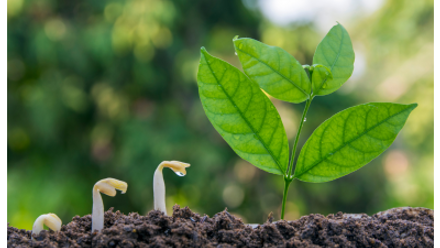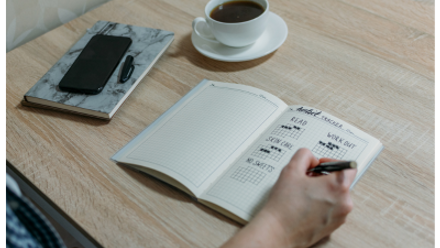Soul food: looking after myself in a sustainable way
5 min read
This week we’ve been looking at making changes in our lives to create a more sustainable future – but thinking about these changes can sometimes be a bit overwhelming, especially on top of whatever else we’re dealing with in life.
In today’s blog, APDO member Karen Woodman considers how we can take care of ourselves, in order to be able to look after the planet. She says, ‘It’s much harder to focus on making other changes if we’re not feeling OK ourselves, so sustaining ourselves is actually an important step in creating a more sustainable world’.
What’s in your bucket?
One way to think about how we are taking care of ourselves, is to imagine that we’re all carrying around a ‘bucket’ that gets filled up with whatever we’re dealing with. We can all handle having some stuff in there, but if things build up then it starts to get more difficult - and sometimes the smallest thing can be what pushes us to overflow. In order to counteract that, we need to find the ‘releases’ that help us to empty our buckets and keep them manageable. What works best will be different for each of us, but there are some ideas in the picture below.
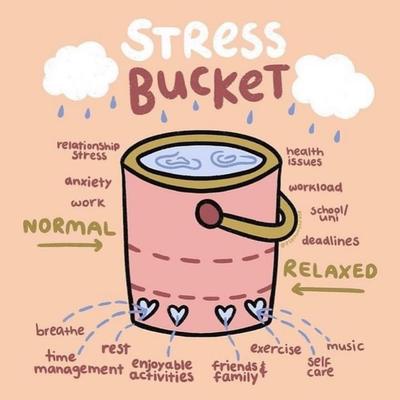
There are also some things that we might think are helping us, but which actually add to our stress levels in the long run – like a few too many drinks or staying up late to binge a TV show. These might start off being enjoyable, but can ultimately leave us struggling the next day – so it’s good to recognise this and instead think about ways that we can improve our wellbeing more sustainably.
For instance, in the blog about habits earlier in the week, we mentioned Gretchen Rubin’s 21 strategies for habit formation and she includes “foundation habits”. She says “certain habits serve as the foundation for other habits, because they keep us from getting too physically taxed or mentally frazzled – then, because we have more energy and self-control, we follow other healthy habits more easily”.
These foundation habits are important as they make it easier for us to deal with the rest of life. As we know, a house built on dodgy foundations is likely to have issues in the future – and similarly we’ll find it much harder to make other changes if our ‘foundations’ are unstable. Have a think about the habits below for yourself – how are your foundations? And are there any small tweaks that might improve things?
- Sleep
- Eating & drinking
- Exercise/movement
- External order
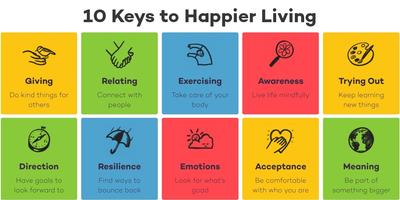
Considering how we can strengthen our foundations is a good starting point – but wellbeing is also about more than just the basics. In fact, the research-based organisation Action for Happiness has identified 10 actions that can help make our lives happier and more fulfilling. Happiness is often associated with material things, but their 10 Keys to Happier Living include connecting with people, being more mindful, trying something new and doing things for others – these don’t have to cost anything and can all be done sustainably.
So, bearing these ideas in mind, what changes can we make to look after ourselves better and keep our ‘buckets’ at a reasonable level? As always, there are different options depending on our preferences/priorities and what’s realistic for us right now…
Just a tweak?

If you’ve not got much time then think about something small that could improve your daily mood…
- Perhaps buying a plant? (there are many benefits to having houseplants)
- Maybe adding some happy photos somewhere in your living/working space to make you smile?
- Or do you have a junk drawer that drives you mad ‘cos it takes ages to find anything? Putting on some favourite music and spending 5 mins sorting it out could help
Think about what could make the biggest difference to you in the shortest time and enjoy experimenting with ideas!
A bit further?
We’ve already talked about the effectiveness of habits, so consider if there's anything you could do regularly to give yourself a boost:
- Maybe a quick walk every day
- Treating yourself to an early night each week
- Or reading for 10 mins before bed
This might feel like an indulgence, but remember the bucket! All these things can help reduce stress and mean that we’re able to tackle everything else more easily.
If you’re stuck for ideas then Action for Happiness have monthly calendars with small actions to provide some inspiration – or you could think more about their ‘10 Keys’, consider what you already do for each and then how you could get more of them into your life.
Taking a bigger step?
If you’ve got more time then this exercise can help to get you thinking/doing…
- Make a list of things that you enjoy and/or have enjoyed in the past – as big or little as you like (from worldwide travel to a nice cup of tea)
- Write down the last time (approx.) that you did each of them
- Choose one or two things from the list that you haven’t done for a while and plan when you can do them (or if it’s something big then plan the next step at least)
- Enjoy! And repeat…
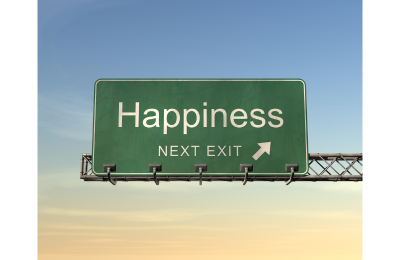
If prioritising wellbeing feels tricky then joining a like-minded group can be helpful to share ideas (tomorrow’s blog will talk more about the importance of communities). Action for Happiness have 10 Keys groups all over the world, as well as running courses on happiness habits. And, as always, if some extra accountability and support might feel helpful then take a look at the APDO directory to find organisers who can help you make the changes that you’d like.
So, taking more care of ourselves might not initially seem the most obvious way to help the planet – but, as long as we do it in a sustainable way, making sure that our foundations are strong and our ‘buckets’ aren’t overflowing can actually put us in a much better place to be able to do whatever is needed to help contribute to a healthier world.
Karen Woodman is a productivity coach who sees planning as a way for us all to get the most out of life – making sure that we’ve got enough time for the things that we want to do, as well as keeping on top of life admin and other necessary tasks. What that means and what methods might work will be different for everyone, so she enjoys exploring this with clients to work out how planning/systems can help to make their lives happier.
She’s also a volunteer for Action for Happiness (helping to run one of their groups) and leads workshops based on Gretchen Rubin’s Four Tendencies framework. Any mentions to them in this blog haven’t been requested or paid for.


